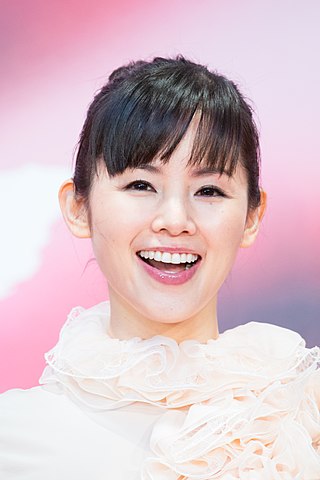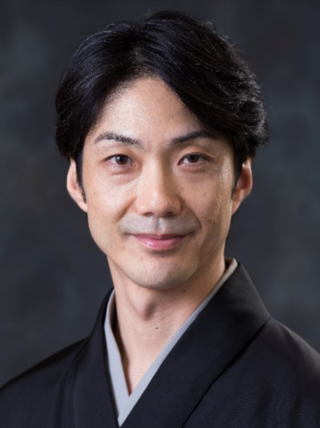Kumiko Hiramaru, better known by her stage name Kumiko Asō, is a Japanese actress. She is also a model and has participated in several commercials.

Rie Miyazawa is a Japanese actress and former idol singer. She is regarded as one of Japan's top actresses, and her accolades include six Japan Academy Film Prizes and three Kinema Junpo Awards.
Hideyuki Hirayama is a Japanese film director. His theatrical debut was the film Maria's Stomach in 1990. He won the Directors Guild of Japan New Directors Award for The Games Teachers Play in 1992. In 1995, School Ghost Stories was a big hit and made into popular series. Begging for Love in 1998 got many awards as International press award (FIPRESCI) in Montreal World Film Festival, Japan Academy Prize for Director of the Year, Mainichi Film Award for Best Director etc. In 2001, Hirayama won Best Director Choice for Turn at the Puchon International Fantastic Film Festival. He also got several Japanese film awards for director, including the Best Director award for The Laughing Frog and Out at the 2003 Yokohama Film Festival.

Go is a 2001 coming-of-age movie, directed by Isao Yukisada, based on Kazuki Kaneshiro's novel of the same title, which tells the story of a Japanese-born North Korean teenager Sugihara and a prejudiced Japanese girl Tsubaki Sakurai whom he falls for. It was Japan's official submission for Best Foreign Language Film at the 74th Academy Awards, but was not accepted as a nominee.

Manami Konishi, also known as KONI-TAN, is a Japanese actress, singer, songwriter, rapper, and record producer.

Yōsuke Kubozuka is a Japanese actor and musician.
Kankurō Kudō is a Japanese screenwriter, dramatist, director, actor and member of the theater company Otona Keikaku. He won the 'Best Screenplay' award at the 2002 Japanese Academy Awards for Go, which explores problems faced by people of Korean-heritage living in Japan.

Etsushi Toyokawa is a Japanese actor.

Nomura Mansai II is a well known Kyogen stage actor, and film actor. He played Abe no Seimei in Onmyoji and Onmyoji 2, an original work by Baku Yumemakura. He received the Best Actor prize at the Blue Ribbon Awards for his work in Onmyoji.

Kaho Indō, better known mononymously as Kaho, is a Japanese actress. Kaho has won multiple Japanese entertainment industry awards, including a Hochi Film Award, a Nikkan Sports Film Award, and a Japan Academy Prize.

Mamoru Hosoda is a Japanese film director and animator. He was nominated for an Academy Award in the category Best Animated Feature Film at the 91st Academy Awards for his seventh film Mirai (2018).
Renji Ishibashi, born Renji Ishida is a Japanese actor. He won the award for best supporting actor at the 15th Hochi Film Award for Rōnin-gai.
Machiko Ono is a Japanese actress.

Fumi Nikaidō is a Japanese actress.
The 23rd Yokohama Film Festival (第23回ヨコハマ映画祭) was held on 3 February 2002 in Kannai Hall, Yokohama, Kanagawa.

Five Minutes to Tomorrow is a 2014 Japanese-Chinese romance suspense film directed by Isao Yukisada based on the Japanese novel of the same name by Takayoshi Honda. The movie, starring Liu Shishi, Haruma Miura, and Joseph Chang, tells a complex love story between twin sisters Ruolan and Rumei and two men, A Liang and Tianlun.
Isao Hashizume is a Japanese actor. He also worked as a narrator for documentaries, both on television and film. He trained as an actor at Bungakuza.
Kanako Nishi is a Japanese writer and artist. She has won the Oda Sakunosuke Prize, the Kawai Hayao Literary Prize, and the Naoki Prize, and several of her books have been adapted for film.
Rio Shimamoto is a Japanese writer. She has won the Gunzo Prize for New Writers, the Noma Literary New Face Prize and the Naoki Prize, and her work has been adapted for film.
The Zainichicinema refers to the transnational film industry of Japan, South and North Korea. With the main theme on the struggles or experiences faced by the resident Korean community or individuals in Japan, the Zainichi cinema is characterized by a wide range of film genres, which encompass melodramas to Yakuza films.










